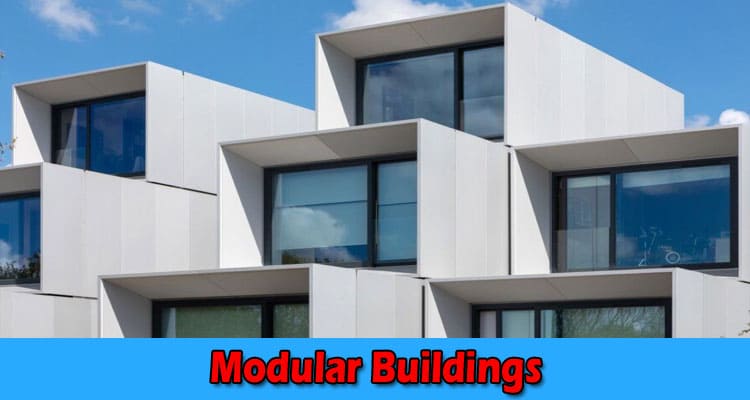In the contemporary business landscape, sustainability has become a cornerstone for success. As companies strive to reduce their environmental footprint, modular buildings emerge as a solution, blending eco-friendliness with efficiency and innovation. This article explores the ways modular buildings can enhance business sustainability.
Table of Contents
Introduction to Modular Buildings
Modular buildings are prefabricated structures made in a factory setting, then transported and assembled at the desired location. This construction method is a stark contrast to traditional on-site building processes and offers several benefits, particularly in the realm of sustainability.
Reduced Environmental Impact During Construction
Minimized On-Site Disturbance
Modular construction significantly reduces on-site disturbance compared to traditional construction. Since a significant portion of the work is done off-site in a controlled environment, there’s less noise, reduced dust, and fewer disturbances to the surrounding ecosystem. This approach minimizes the environmental impact of construction activities.
Efficient Use of Materials
In a factory setting, it’s easier to control and optimize material usage. Modular construction reduces waste through precise cutting and reusing or recycling leftovers. In contrast, traditional construction often leads to significant waste due to over-ordering and disposal of unused materials.
Energy Efficiency in Modular Buildings
Enhanced Insulation
Modular buildings are often designed with better insulation in the walls, roofs, and floors, which leads to lower energy consumption for heating and cooling. This design aspect contributes to a more sustainable use of resources and reduces the carbon footprint of the building.
Sustainable Materials
Many modular building manufacturers use sustainable and recycled materials, contributing to environmental conservation. The use of eco-friendly materials not only reduces the depletion of natural resources but also often enhances the building’s overall energy efficiency.
Long-term Sustainability Benefits
Durability and Adaptability
Modular buildings are not just temporary structures; they are built to last. Their durability means they can be reused and repurposed, extending their life cycle and reducing the need for new construction. Furthermore, modular buildings can be easily disassembled and relocated, which is less resource-intensive than building anew.
Reducing Operating Costs
The energy-efficient nature of modular buildings leads to reduced operating costs over time. Lower energy consumption for heating, cooling, and lighting translates into significant cost savings, a key consideration for any business aiming for economic and environmental sustainability.
Flexibility and Scalability
Meeting Changing Business Needs
The modular nature of these buildings allows for easy expansion or downsizing, making them ideal for businesses with fluctuating space needs. This adaptability prevents the need for new construction, avoiding the environmental impact of building from scratch.
Customisable Designs
Bespoke modular buildings can be custom-designed to include eco-friendly features like solar panels, green roofs, and rainwater harvesting systems. This customisation capability enables businesses to align their operations with sustainability goals further.
Speed of Construction and Reduced Carbon Emissions
The speedier construction of modular buildings also contributes to sustainability. Faster construction times mean reduced emissions from construction equipment and machinery, leading to a smaller carbon footprint for the building process.
Supporting Corporate Social Responsibility (CSR)
Aligning with Environmental Goals
Adopting modular buildings can be a part of a company’s CSR strategy, showcasing a commitment to environmental stewardship. This alignment can enhance brand reputation and resonate with environmentally conscious consumers, employees, and stakeholders.
Regulatory Compliance
As governments worldwide impose stricter regulations on environmental sustainability, modular buildings can help businesses comply with these regulations and avoid potential fines or sanctions.
Challenges and Considerations
Initial Investment
While the long-term benefits of modular buildings are clear, the initial investment can be a hurdle for some businesses. However, this should be weighed against the long-term savings and environmental benefits.
Modular buildings offer a sustainable, efficient, and adaptable solution for businesses looking to minimize their environmental impact. The benefits are clear, from reduced waste and energy efficiency to long-term adaptability and CSR alignment. As the business world prioritises sustainability, modular buildings stand out as a practical and responsible choice, contributing to a greener, more sustainable future.
If you think a modular building is the ideal choice for your business, contact the team at Phoenix Building Systems, who will be happy to help.


